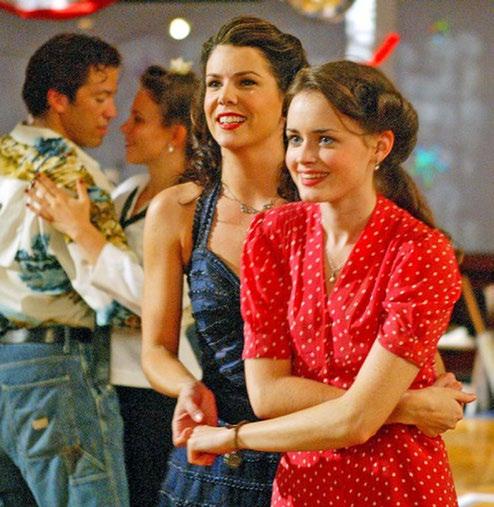Portrait Artist of the Year: Painter Toby Michael and sitter Wunmi Mosaku
Inspiration to all
F
or many of us, starved of enjoying a real performance in a theatre or a concert hall these past months, watching Sky Arts in lockdown was a revelation. Most of us knew about its flagship shows Urban Myths and Portrait Artist of the Year. We were less familiar with the service’s sheer eclecticism, which encompasses everything from ballet to the blues and Bono. “On some occasions, our audience figures increased by as much as 40%,” says Phil Edgar-Jones, who runs the channel. “During lockdown, we found that, across the board, there was a real hunger for cultural content. It wasn’t only Sky Arts that benefited from this.” A spin-off show, Portrait Artist of the Week, perhaps reflecting a desire by some people in lockdown to take up painting, was one notable success. The programme, which will return in October, was first shown on Facebook Live before transferring to the channel. “What we took away from this was that there is a great sense of community that can be built around people’s passion points,” he observes. Edgar-Jones will soon be responsible
18
for another milestone in Sky Arts’ history when, on 17 September, Sky Arts stops being a subscription-only service and goes free-to-air. The move is bound to increase the network’s popularity. In some quarters, it is being interpreted as a direct challenge to the BBC. Several commentators have remarked on what they perceive as a diminishing number of regular arts slots available on BBC television. Even BBC Four has latterly pivoted away from the arts to the extent that presenters such as the brilliant Andrew Graham-Dixon are rarely seen on the channel. Edgar-Jones, who joined Sky as head of entertainment in 2012, plays down any suggestion that having Sky Arts on Freeview is likely to lure viewers away from BBC TV’s arts coverage. “The BBC’s arts content is fantastic. It’s very different to ours. We think about how we can create work that has a Sky flavour to it. Participation is at the heart of that,” he insists. “I don’t see it as a zero-sum game. We’re all in it together. I’d like to work with [the BBC], not against it. I’d love to partner with the BBC on projects.... “We always ask ourselves: ‘Can we
be distinctive and do something different to the BBC and Channel 4?’ I can say to an artist, ‘You can have the channel for as long as you like, we’ll take out the ad breaks, it’s yours, do what you like with it’.” Why, then, is Sky Arts removing its pay wall? The channel’s impressive on-demand programming, amounting to around 2,000 hours of cultural content, will remain exclusive to Sky subscribers. “We’ve been looking at it for a while, the best part of 2019. We did a lot of research around the channel and talked to people in the arts world, practitioners and leaders, to see what it was about the channel that was important to them.” Three conclusions were drawn from this process – the desire to make Sky Arts more widely accessible, the need to help drive diversity and inclusivity, and the aim of increasing participation in the arts. “So it made logical sense to allow the channel to reach more people,” explains Edgar-Jones, who says he is now going out again to sample the arts. Recent forays have included a local art-house cinema in north London and the opera, socially distanced of course, at
Sky
Sky Arts is about to debut as a free service. Phil Edgar-Jones, the man in charge, explains to Steve Clarke what new viewers can expect














